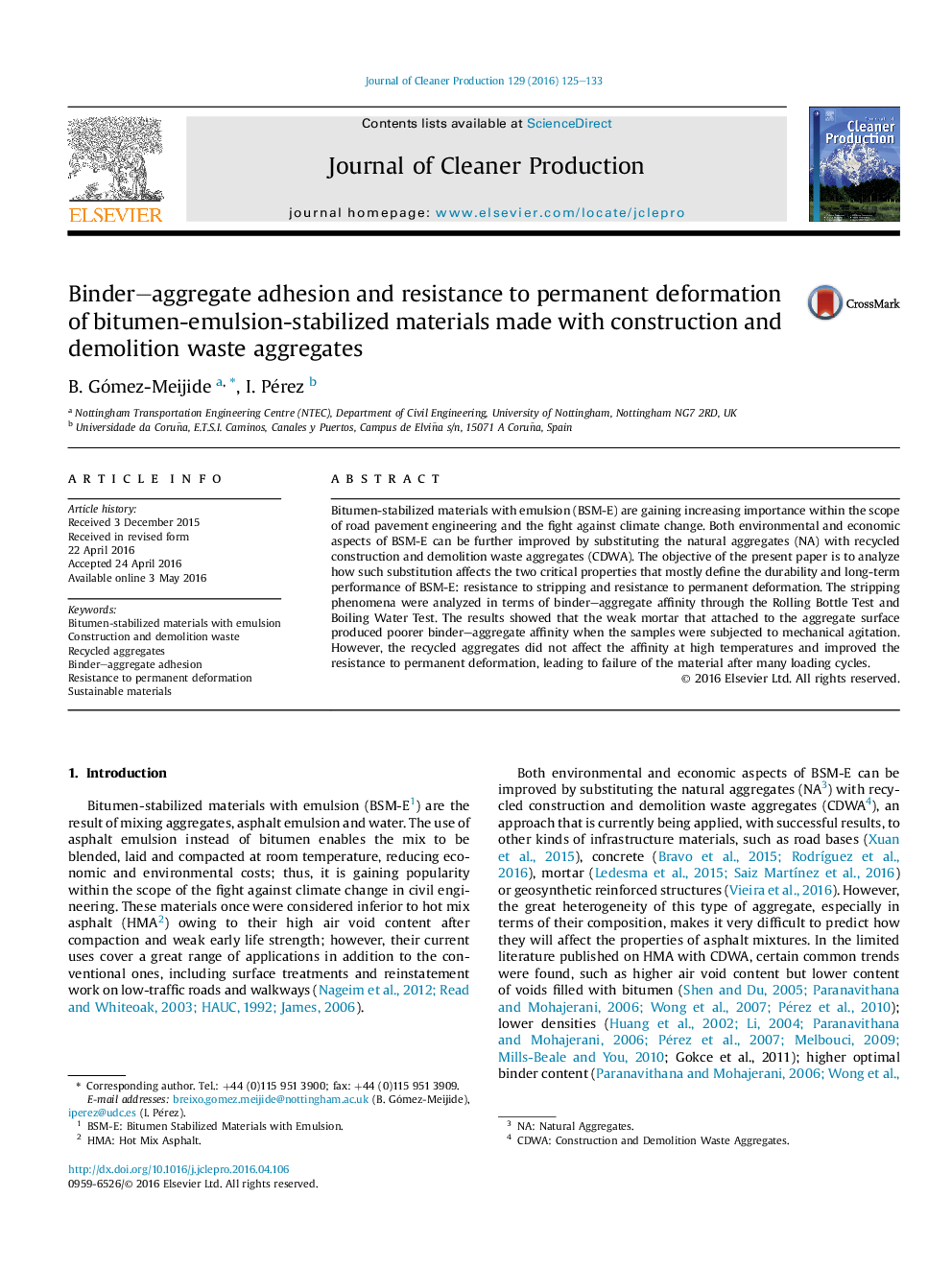| Article ID | Journal | Published Year | Pages | File Type |
|---|---|---|---|---|
| 8101839 | Journal of Cleaner Production | 2016 | 9 Pages |
Abstract
Bitumen-stabilized materials with emulsion (BSM-E) are gaining increasing importance within the scope of road pavement engineering and the fight against climate change. Both environmental and economic aspects of BSM-E can be further improved by substituting the natural aggregates (NA) with recycled construction and demolition waste aggregates (CDWA). The objective of the present paper is to analyze how such substitution affects the two critical properties that mostly define the durability and long-term performance of BSM-E: resistance to stripping and resistance to permanent deformation. The stripping phenomena were analyzed in terms of binder-aggregate affinity through the Rolling Bottle Test and Boiling Water Test. The results showed that the weak mortar that attached to the aggregate surface produced poorer binder-aggregate affinity when the samples were subjected to mechanical agitation. However, the recycled aggregates did not affect the affinity at high temperatures and improved the resistance to permanent deformation, leading to failure of the material after many loading cycles.
Keywords
Related Topics
Physical Sciences and Engineering
Energy
Renewable Energy, Sustainability and the Environment
Authors
B. Gómez-Meijide, I. Pérez,
